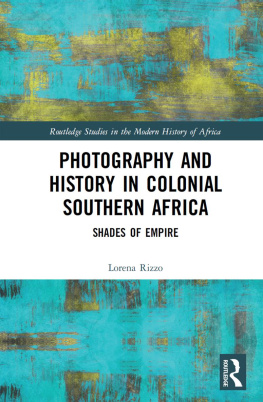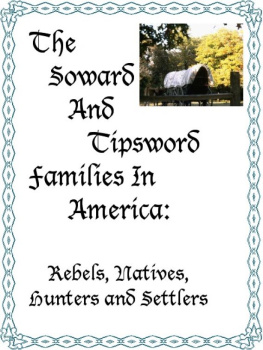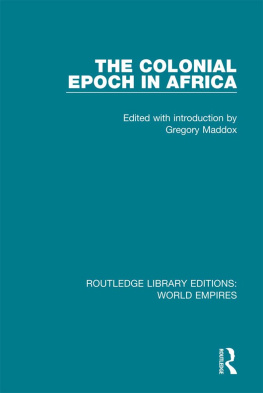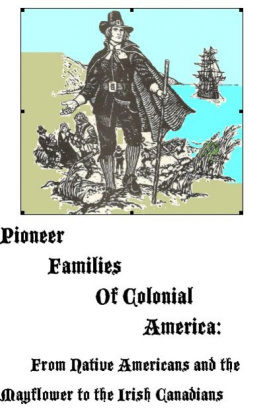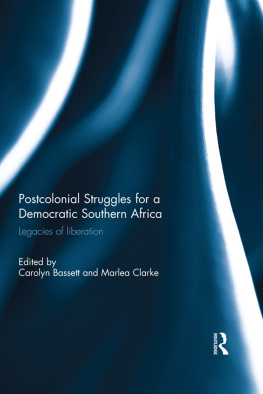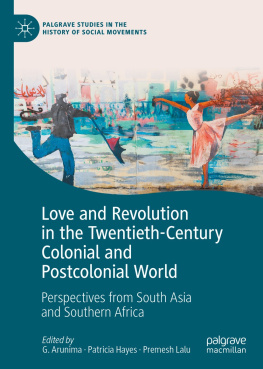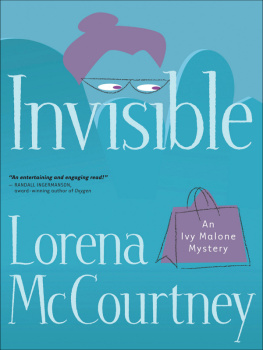Photography and History in Colonial Southern Africa
This book studies the relationship between photography and history in colonial Southern Africa, using a series of encounters with Southern African photographic archives to reflect on photography as a distinct historical form.
Through the use of private and public archives, images produced by African itinerant photographers, white settlers, and colonial state institutions, this book explores the relationship between photography and history in colonial Southern Africa. Late nineteenth century Cape Colonial prison albums, police photographs from German South West Africa, African studio portraits, identity documents, travel permits and passports from the 1920s and 1930s, visual studies of whiteness and blackness authored by settler photographers, South African dompas photographs from the 1950s and 1960s, and aerial photography from the Eastern Cape in the mid-twentieth century are examined to highlight the ways in which photographic images cut across conventional institutional boundaries and complicate rigid distinctions between the private and the public, the political and the aesthetic, the colonial and the vernacular, or the subject and the object. Photography and History in Colonial Southern Africa argues that rather than understanding photographs as a means of preserving and recreating the past in the present, we can value them for how they evoke at once the need for and the limits of historical reconstruction.
This book will be of interest to students and scholars of colonial history, photographic history, visual media, and African studies.
Lorena Rizzo is a historian at the University of Basel, Switzerland. She has taught in universities in Switzerland, Germany, Namibia, South Africa and the USA, curated photographic exhibitions, and organised public history projects across Europe and Southern Africa.
Routledge Studies in the Modern History of Africa
This series includes in-depth research on aspects of economic, political, cultural, and social history of individual countries, as well as broad-reaching analyses of regional issues.
Themes include social and economic change, colonial experiences, independence movements, post-independence governments, globalisation in Africa, nationalism, gender histories, conflict, the Atlantic Slave trade, the environment, health and medicine, ethnicity, urbanisation, and neo-colonialism and aid.
Forthcoming titles:
Human Rights in Sierra Leone, 17872016
The Long Struggle from the Transatlantic Slave Trade to the Present
John Idriss Lahai
Miscegenation, Identity and Status in Colonial Africa
Intimate Colonial Encounters
Lawrence Mbogoni
Displaced Mozambicans in Postcolonial Tanzania
Refugee Power, Mobility, Education, and Rural Development
Joanna T. Tague
Africans and the Holocaust
Perceptions and Responses of Colonized and Sovereign Peoples
Edward Kissi
Photography and History in Colonial Southern Africa
Shades of Empire
Lorena Rizzo
First published 2020
by Routledge
2 Park Square, Milton Park, Abingdon, Oxon OX14 4RN
and by Routledge
52 Vanderbilt Avenue, New York, NY 10017
Routledge is an imprint of the Taylor & Francis Group, an informa business
2020 Lorena Rizzo
The right of Lorena Rizzo to be identified as author of this work has been asserted by her in accordance with sections 77 and 78 of the Copyright, Designs and Patents Act 1988.
All rights reserved. No part of this book may be reprinted or reproduced or utilised in any form or by any electronic, mechanical, or other means, now known or hereafter invented, including photocopying and recording, or in any information storage or retrieval system, without permission in writing from the publishers.
Trademark notice: Product or corporate names may be trademarks or registered trademarks, and are used only for identification and explanation without intent to infringe.
British Library Cataloguing-in-Publication Data
A catalogue record for this book is available from the British Library
Library of Congress Cataloging-in-Publication Data
A catalog record has been requested for this book
ISBN: 978-1-138-34301-6 (hbk)
ISBN: 978-0-429-43945-2 (ebk)
Typeset in Bembo
by Lumina Datamatics Limited
There are a number of institutions and people without whom this book would not have been possible. I began working on this project as a fellow in the Department of Africanamerican and African Studies at the University of Michigan in 2010. I would like to thank Derek Peterson for hosting me, and David William Cohen for the many conversations, early morning neighbourhood breakfasts, and walks around Ann Arbor. Helmut Puff and Kathryn Babayan were lovely friends and colleagues with whom to share the joys and sorrows of diasporic lives. Claire Zimmerman, Christopher Ratt, and their two children, Helena and Leo, hosted me and made me feel welcome and at home. Between 2011 and 2013 I was a research fellow in the Centre for Humanities Research (CHR) at the University of the Western Cape (UWC) in Bellville, South Africa. These were the formative years for this project, since I could do extensive archival research, interviews, and oral history. Premesh Lalu and Suren Pillay were generous hosts at the CHR, and every conversation with them was exciting, instructive, and critical for refining my understanding of South African history and critical theory. Ciraj Rassool and Lelie Witz at the History Department of UWC have been colleagues and friends for many years. I value their ongoing interest in my work, their intellectual generosity, and their exceptional knowledge of South African pasts and presents. Ciraj, Leslie and Gary Minkley, at the University of Fort Hare, Alice, Eastern Cape, South Africa, have been critical in transforming South African history, and they have been an inspiration for those of us who wish to push the boundaries of the discipline and write imaginative histories that speak to audiences within and beyond the academy in meaningful ways. While at UWC, I was privileged to meet a group of exceptional co-fellows and members of faculty, among them Phindezwa Mnyaka, Nina Sylvanus, Ruchi Chaturvedi, Jane Taylor, Noeleen Murray, Brian Raftopoulos, Maurits van Bever Donker, Janeke Thumbran, Bianca van Laun, and Anna Selmeczi, all of whom made the CHR a place of scholarly rigour, and social and personal well-being. Lameez Lalkhen was a remarkable and friendly administrator, who made the lives of international visitors as comfortable as possible. The summer schools organised by Premesh Lalu, Gary Minkley and Helena Pohlandt-McCormick were great opportunities for intense discussion and for strengthening our ties across disciplinary fields and geographical regions. I continue to value the colleagues I met on these occasions and the friendships forged. Archival research in Cape Town was critical for some of the key arguments developed in the book. Erika Le Roux and staff at the Western Cape Archives and Records Service were incredibly helpful and supportive in accessing the photographic collections and granting permission to reproduce and publish photographs. Collections at the South African National Archives and the Ditsong Museum of Cultural History in Pretoria, the Museum Africa in Johannesburg, and the National Geospatial Information in the Department of Rural Development and Land Reform in Cape Town were all easily accessible, and the archivists most helpful in securing high-quality reproductions of photographs. I am particularly indebted to Elize Schneigansz for her research assistance. Tina Smith, head curator at the District Six Museum, and Paul Grendon, independent photographer in Cape Town, have become dear friends and family, critical interlocutors, and generous colleagues, who introduced me to the thriving world of Cape Towns museums, festivals, and creative and visual arts, and have refined my understanding of diverse cultures and practices of knowledge production. I am grateful to Paul Grendon for allowing me to use some of his photographs in the book. Research for the book also included regular visits to Namibia, where I worked in various archives and collections. My thanks go to the National Archives of Namibia and to their retired head archivist Werner Hillebrecht, who continues to be generous and helpful whenever I need advice in locating photographs and contextualising them in a history of archival acquisition, conservation, and classification that remains, at times, nebulous. My Namibian colleagues have always been supportive of my work and have made the many visits and research initiatives over the past two decades always pleasurable and successful. My thanks go to Martha Akawa and Godman Gwasira at the University of Namibia, Saara Ilovu at the Usakos Museum, and last but not least to Jeremy Silvester at the Museums Association of Namibia. In 2013 I returned to Europe and took up a post in the History Department at the University of Bielefeld, Germany. My thanks go to Angelika Epple for her commitment to make African history part of the curriculum there. I enjoyed two years of teaching, and the possibility to think about my work in Southern Africa within the framework of transnational and global history. Between 2015 and 2017 I had the privilege to spend two years at Harvard University, first as a visiting scholar at the Center for African Studies and later as the Oppenheimer fellow at the Hutchins Center for African and African American Research. The years spent at Harvard provided the perfect academic environment for writing the book, and many colleagues there have shared ideas and made critical comments on earlier drafts of chapters. My gratitude and thanks go to Jean and John Comaroff, who have been mentors and friends for many years. Their scholarly creativity and rigour, and their intellectual generosity are exceptional; the many conversations in Cambridge, Basel, and Cape Town were simply wonderful. Henry Louis Gates Jr. was a generous host at the Hutchins Center, and I am grateful to him for creating a fellowship programme that enables scholars from across the world and the disciplines to meet and engage with each others work. Christian Crouch and Gaiutra Bahadur have been wonderful co-fellows; my thinking and writing on history and photography has benefited enormously from our exchanges and conversations during the Hutchins Center Fellows Colloquium. My sincere thanks go to Krishna Lewis and to her colleagues, all of whom have made the fellows feel at home.


